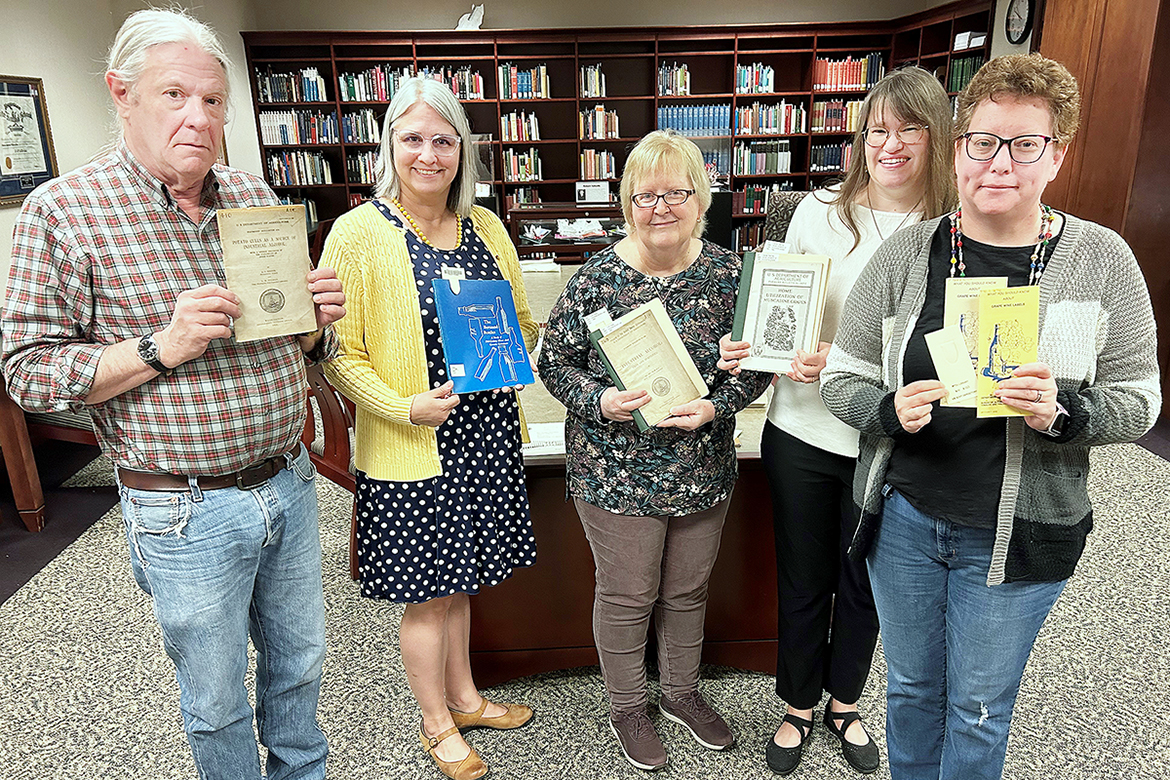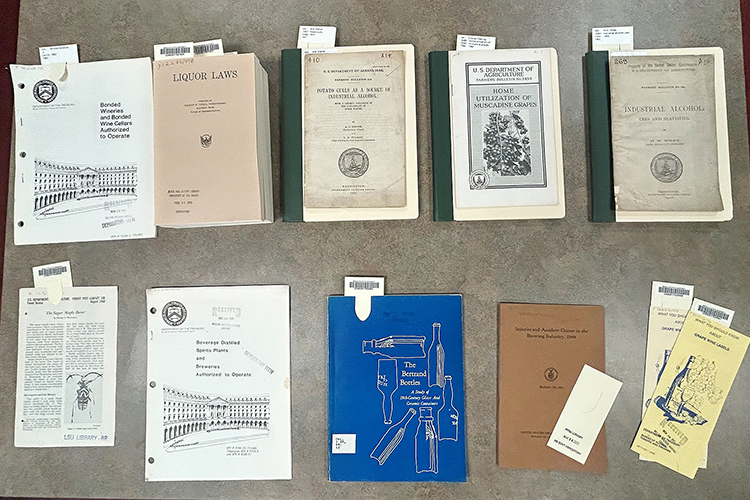MTSU‘s James E. Walker Library has been named as a Preservation Steward for the U.S. Government Publishing Office, an agreement through which the library will obtain and preserve publications relating to agricultural, legal and cultural aspects of brewing and distilling from the 1800s through 1980.
The topic falls in line with the university’s Fermentation Science Program and School of Agriculture and provides tangible items the university community can use for research and exploration.

“Our goal is to collect as comprehensively as we can,” explained Susan Martin, chair of collection development and management in Walker Library. “And because the liquor industry is highly regulated, there are lots of documents coming from the government.”
In addition to Martin, four other Walker Library staff were instrumental in getting the stewardship program off the ground: Alan Boehm, head of special collections; Beverly Geckle, continuing resources librarian and federal depository coordinator; Susan Hanson, special collections cataloguing; and Toni Butler Click, continuing resources coordinator and federal documents assistant.
The group’s efforts add another component to the library’s 3-year-old Distilling, Fermenting and Brewing Collection, which covers the history and production of the liquor industry from colonial times through present day, with an emphasis on Tennessee.
“This (designation) allows us to operate and elevate our collections at a national level because this is a federal program,” Martin said. “We are part of a collective preserving government material and want to make sure this material is available in the future.”

Items already in the collection include law books, informational pamphlets, plant and pest control handbooks, and how-to guides.
“We don’t care if it’s coming from the ATF or Department of Agriculture; if it fits topically into our collection, we want it,” Martin said.
Almost everyone in the group has a favorite find. Boehm is fond of the U.S. Department of Agriculture’s booklet on “Home Utilization of Muscadine Grapes.” An exploration of glass bottles used in distilling spirits is a favorite of Martin’s, while Click enjoyed learning about the ecological impact bees have on pollinating the agricultural products used in making spirits.

All the print documents and ancillary items are meticulously catalogued and housed in a temperature-controlled vault.
The GPO stewardship also parallels the library’s 110-year participation in the Federal Depository Library Program, or FDLP, which makes U.S. government documents and publications available to the public at no cost.
“One thing the federal depository requires is regional libraries,” Click said. “They are hoping to have a document held in every region and spread out the collections so (print items) are protected from natural disasters.”
Libraries seeking to preserve documents they are withdrawing can be reimbursed for shipping expenses through the stewardship program.
Walker Library special collections staff members use two main databases to find documents to preserve: the Association of Southeastern Research Libraries documents disposition database, which lists FDLP documents Southeast libraries plan to withdraw, as well as the FDLP eXchange, which is the Government Publishing Office’s national database of documents FDLP libraries wish to withdraw.
“We cast a wide net. We have our routines,” Boehm said. “A lot of it is doggedly getting on the internet to look for stuff.”
To learn more about the distilling collection at Walker Library, visit https://library.mtsu.edu.
— Nancy DeGennaro (Nancy.DeGennaro@mtsu.edu)

COMMENTS ARE OFF THIS POST